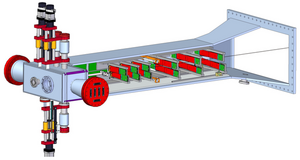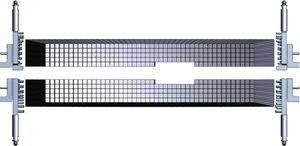The HPS Run Wiki
From hps run
[edit]
First rule of HPS: Document all your work in the logbook!
Important Phone NumbersShift ScheduleShift-Taker's ChecklistHot CheckoutBeam Time AccountingHPS Run Spreadsheet |
Procedures
|
Manuals |
JLab Logbooks
|
RC: Nathan Baltzell
- (757) 575-7540
- 9 575 7540 from Counting Room
PDL: Stepan Stepanyan
Run Plan for May 10 - 18, 2015:During week days, Mon-Thursday, there will be no Day shifts due to work in the hall. We will be running with 1.05GeV beam. This beam needs to be carefully restored, first to the tagger dump, then to the alcove and Faraday cup screen. See detailed instructions in the right pannel. Short term schedule:
Miscellaneous Notes:
|
General Instructions: Recovering from beam trips when running SVT at 0.5 mm
Every Shift:
Every Run:
Setting up chicane for E=1.056 GeVNote: This requires only Beam Permit and NO beam to HPS / Faraday Cup. This CAN be done before or during tuning beam on the Tagger Dump.
SVT Instructions:
ECAL Instructions:
Acceptable Beam Conditions:
|
|
|
| |||||||||||||||||||||||||||||||||||||||||||||||||||||||||||||||||||||||||||||||||||||
|
Webcams: |
Trigger: |
Accelerator: Slow Controls:
|
Online & Offline: |


